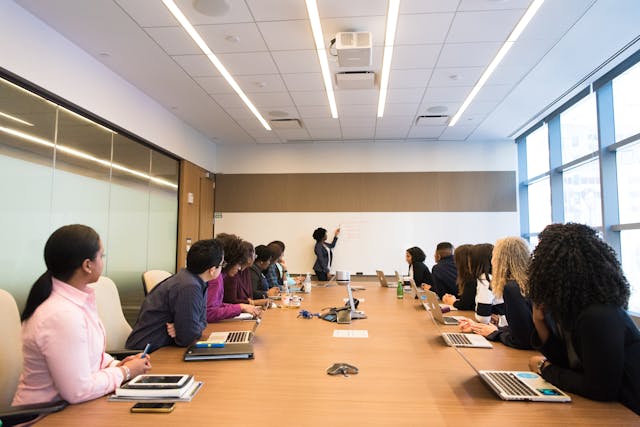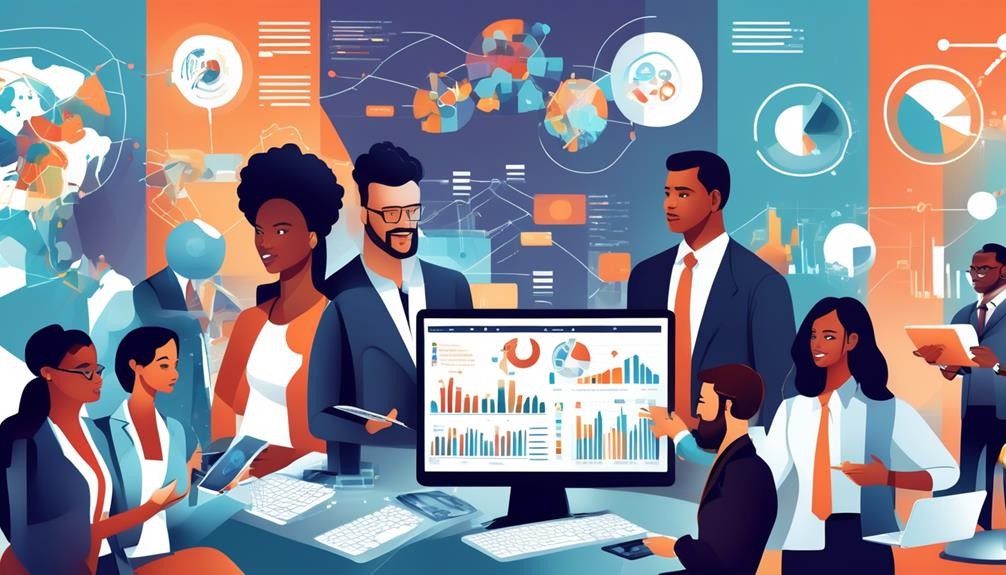Gen Z is the latest generation to join the workforce. And like generations before them, they have a collective set of ideas about what makes an ideal organization. For Gen Z, diversity, equity, and inclusion or DEI initiatives dominate their expectations. However, this cohort doesn’t think about DEI like its predecessors do.
It’s not just about demographics, and it’s not enough for leaders to say they support diversity. DEI is all-encompassing, including personalities, thinking patterns, and worldviews. Gen Z finds it hard to join and stay with organizations without initiatives that permeate a company’s entire culture. Often, they don’t, leaving those companies behind for those where they feel comfortable as their true selves.
Consultants who help improve cultures realize how instrumental they can be to recruiting and retention. When you’re sitting on the recruiter’s side of the table, savvy candidates are asking hard-pressed questions. They want to dig at what it’s really like to work there and if they’ll get the support they crave. But when it comes to Gen Z and DEI, there’s no faking it. Here’s why DEI matters so much to this generation and what you can do about it.
Why DEI Matters
It’s natural to think of a job as a means to an end. You’re trading your time for a paycheck. How you feel about the company’s culture sometimes plays second fiddle to your bank account. You’ve got to grin and bear it to survive. This line of thinking tends to align with previous generations, such as Baby Boomers and older Gen Xers.
Marissa Andrada, culture master and kindness catalyst, would argue it’s a breath of fresh air to see these views losing their grip with Gen Z workers. As a generation, Gen Z is more diverse and defines success differently. They want different things from their employers because they’re the most diverse population to ever enter the workforce.
Andrada says, “I have always cared about helping companies and leaders cultivate environments where everyone feels psychologically safe and a sense of belonging. The ‘old guard’ of hierarchical corporate life used to feel like this to me: ‘Here is what success looks like. These are the skills and behaviors to be successful.’ That success profile was based on the leaders at the top.”
Elaborating on this profile, Andrada says, “They all looked the same, dressed the same, had the same weekend hobbies (golf anyone?). To be successful in this construct was to learn how to assimilate. Gen Z wants to belong, feel supported at companies that prioritize inclusion, and they want to see evidence of it.”
Prioritize DEI
You’re mistaken if you think Gen Z doesn’t do their homework. Your recruiting efforts start with your culture’s reputation. They go beyond what your company’s website touts about DEI. Younger job seekers are checking employee reviews, especially ones from similar backgrounds. Candidates also look to see who makes up your executive team and whether you have a DEI officer on staff.
They’re verifying your organization’s human resources and professional development certifications. They want to know you’re acting on your words. If the executive page of your website doesn’t reflect diversity, most Gen Z will move on. It can be a red flag, particularly if no one on the executive team reflects who they are.
A critical move HR leaders can do is to examine their data. Is the talent pipeline supporting diversity at each stage? And what is the organization doing to minimize biases? Say your company attracts a good number of diverse candidates. But not enough applicants make it to the initial interview.
This data could signal a need to address flaws in your screening and application review processes. The same goes for gaps in the number of diverse candidates who accept offers. If job seekers get to this stage but don’t come on board, you could have a culture problem.
Support Diverse Decision-Making
Prioritizing DEI also means focusing on diverse decision-making. You don’t want your committees to look and think the same. Collaborative committees with a range of perspectives demonstrate you’re serious about DEI. It can also boost business performance.
McKinsey & Company’s research shows culturally and ethnically diverse organizations are 33% more likely to outperform industry peers. In addition, gender-diverse executive teams are 21% more likely to have exceptional profitability results when compared to competitors. Companies that perform well tend to attract high-performing candidates regardless of generation.
The presence of diverse decision-making teams says different opinions have a voice. The company isn’t excluding anyone from the table where choices are made. It’s proof an organization supports the career progression of workers with varied backgrounds.
Extend the Meaning of DEI
Everything about your culture is either going to support or discourage DEI. Diversity and inclusion aren’t just about giving everyone a decision-making voice. When it comes to recruitment and retention, Gen Z is evaluating the overall employee experience.
Are your benefits and work arrangements supporting different needs, such as neurodivergence? How about the way managers talk during informal conversations and meetings? Are there comments that could be interpreted as hostile and insensitive?
Address any shortcomings employees and candidates could interpret as marginalization at best and outright discrimination at worst. Remember, the employee experience can start with internships and trainee programs. While it takes everyone in the organization to fix a culture, it starts with behaviors leaders tolerate and endorse.
Think of DEI as a Recruiting Tool
Surveys among Gen Z workers show 67% have seen workplace discrimination while 44% have experienced it themselves. These statistics point toward the dire need for culture overhauls. But Gen Z doesn’t want employers to just put the kibosh on workplace discrimination.
They want open, active support of the full meaning of diversity and inclusion. Gen Z seeks organizations that embrace DEI in its truest sense — a culture that fosters psychological safety, belonging, and support for every individual, regardless of their background. Leaders who create cultures with these attributes can position themselves as magnets for Gen Z talent, enabling them to build diverse and high-performing teams that drive innovation and success.










